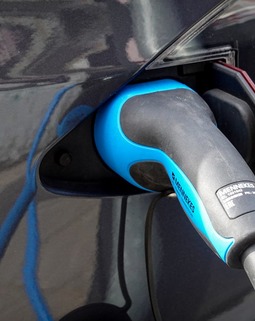Kenyan car importers are currently facing an urgent deadline as they rush to comply with new regulations set by the Kenya Bureau of Standards (KEBS). These regulations impose an eight-year age limit on imported second-hand vehicles, which will take effect on January 1, 2025. This directive requires that all vehicles registered in 2017 or earlier must arrive in Kenya before the end of this year to avoid penalties and ensure compliance.
Understanding the New Regulations
The new guidelines from KEBS specify that only Right Hand Drive (RHD) vehicles first registered from January 1, 2018, onwards will be permitted entry into the country starting January 1, 2025. This regulation aims to enhance road safety by preventing the importation of older, potentially less safe vehicles and to support local vehicle assembly initiatives. The move is part of a broader strategy to improve the quality of vehicles on Kenyan roads and reduce the dumping of substandard second-hand cars.
Key Points from KEBS Directive
- Deadline: All second-hand cars registered in 2017 or earlier must be imported and cleared by December 31, 2024.
- Compliance: Vehicles arriving after this deadline will be deemed non-compliant and rejected at the importer's expense.
- Inspection Requirements: Imported vehicles must come with a Certificate of Roadworthiness (CoR) issued by recognized inspection agencies, particularly for those coming from countries like Japan, the UAE, the UK, Thailand, Singapore, and South Africa.
The Rush to Beat the Deadline
As the deadline approaches, car importers are scrambling to bring in vehicles that comply with the new rules. This rush has been characterized by increased activity at ports and among dealers who fear significant financial losses if they cannot import their vehicles in time. According to Peter Otieno, chairman of the Car Importers Association of Kenya (CIAK), while there is a surge in imports as traders hurry to meet the deadline, a shortage of foreign currency has complicated matters. This situation has led to concerns about inflated prices for newer vehicles due to increased demand.
Economic Implications
The impending changes are expected to have several economic implications:
- Increased Vehicle Prices: With a limited supply of compliant vehicles and heightened demand, prices for newer imports are likely to rise.
- Impact on Consumers: Consumers may face higher costs when purchasing vehicles as importers adjust their pricing strategies to cover increased expenses associated with complying with the new regulations.
- Market Dynamics: The market for second-hand cars could see significant shifts as older models become harder to acquire legally, pushing buyers towards newer models or local assembly options.
Conclusion
The new age-limit directive from KEBS marks a significant shift in Kenya's automotive landscape. As car importers race against time to meet the December 31 deadline, they face both challenges and opportunities. While compliance may lead to higher prices for consumers in the short term, it also paves the way for safer and more reliable vehicles on Kenyan roads. The government's focus on enhancing road safety and supporting local assembly initiatives reflects a commitment to improving the overall quality of transportation in the country.





